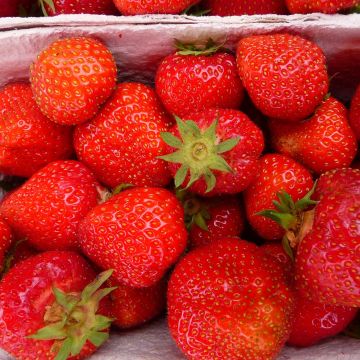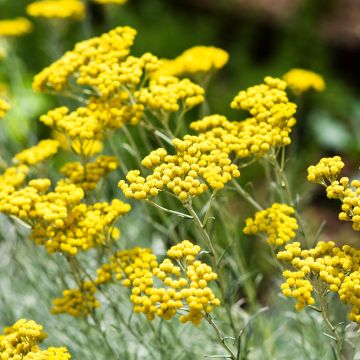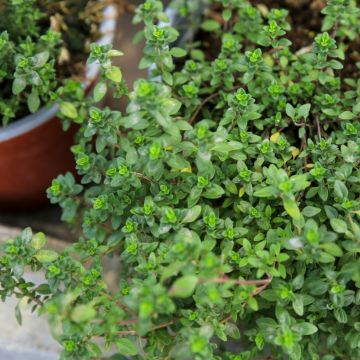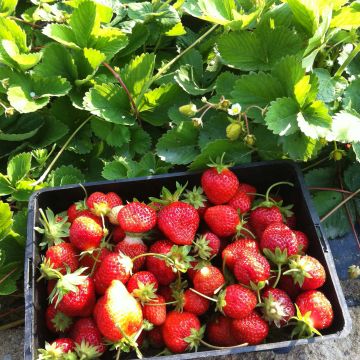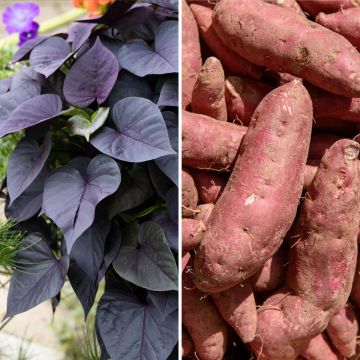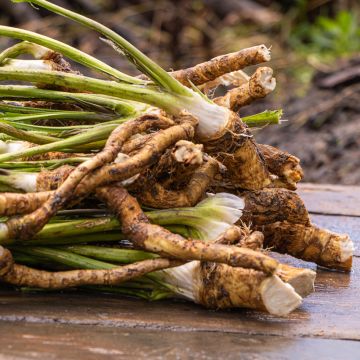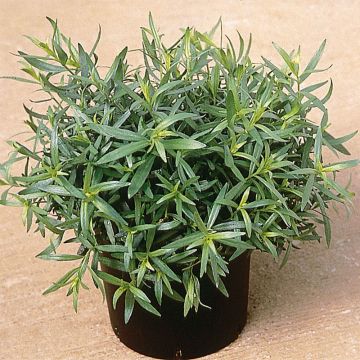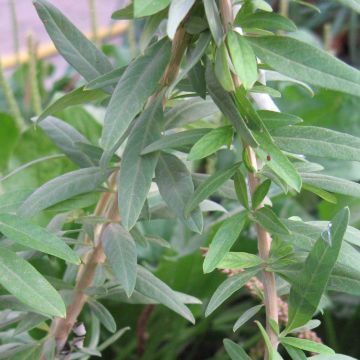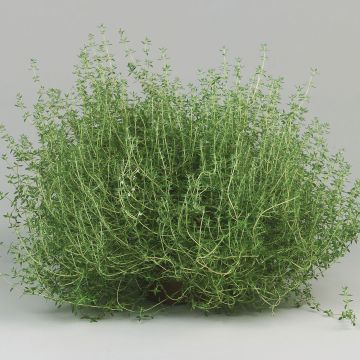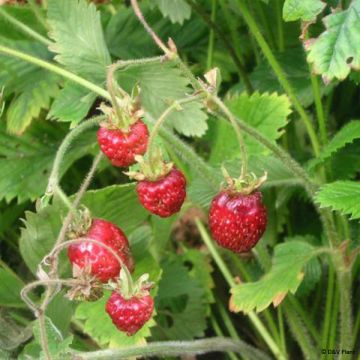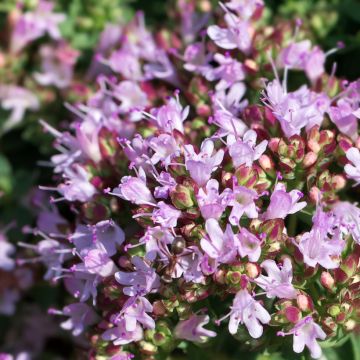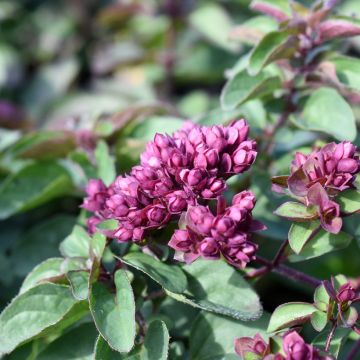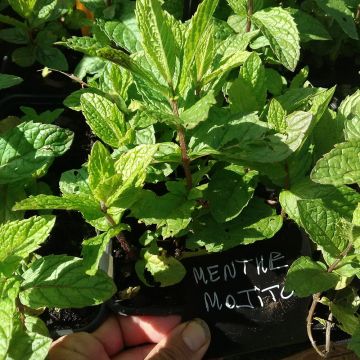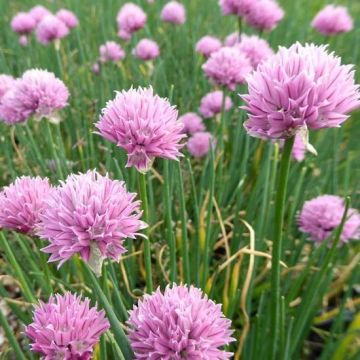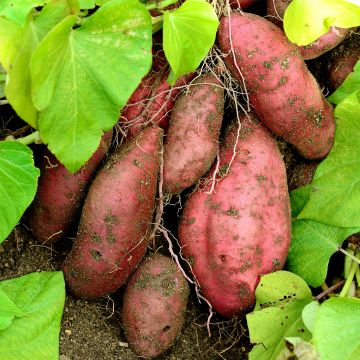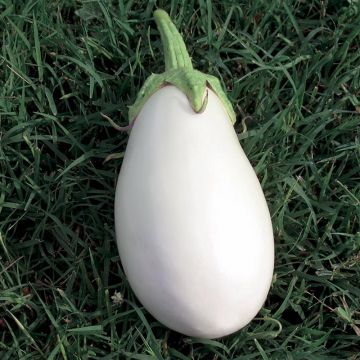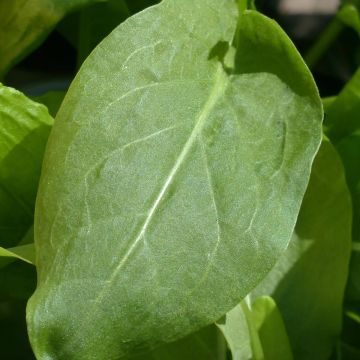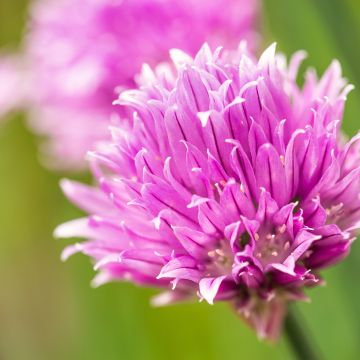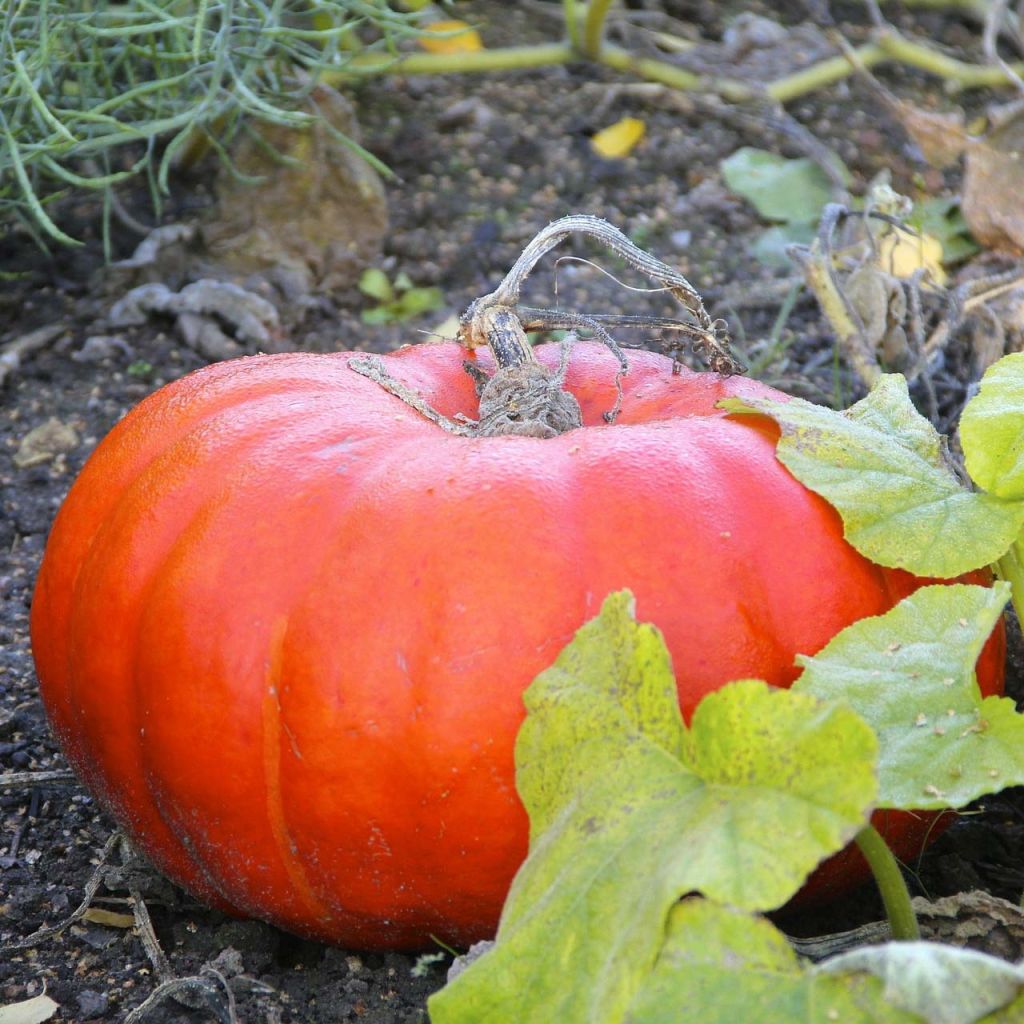

Pumpkin Rouge Vif d'Etampes plants - Cucurbita maxima
Pumpkin Rouge Vif d'Etampes plants - Cucurbita maxima
Cucurbita maxima Rouge Vif d'Etampes
Pumpkin Rouge Vif d' Etampes
The plant arrived in good condition... we'll see after a few days in the ground.
Chantal, 09/06/2020
Special offer!
Receive a €20 voucher for any order over €90 (excluding delivery costs, credit notes, and plastic-free options)!
1- Add your favorite plants to your cart.
2- Once you have reached €90, confirm your order (you can even choose the delivery date!).
3- As soon as your order is shipped, you will receive an email containing your voucher code, valid for 3 months (90 days).
Your voucher is unique and can only be used once, for any order with a minimum value of €20, excluding delivery costs.
Can be combined with other current offers, non-divisible and non-refundable.
Why not try an alternative variety in stock?
View all →This plant carries a 6 months recovery warranty
More information
We guarantee the quality of our plants for a full growing cycle, and will replace at our expense any plant that fails to recover under normal climatic and planting conditions.
Description
The Bright Red Etampes Pumpkin is a traditional variety that produces large, bright red fruits. They are spherical, very flat, and sometimes curved, ribbed, and often lumpy. Their flesh is thick, yellow-orange, tender, and watery. It is a running, vigorous, and early-maturing squash that can be planted from April to June for harvesting in September - October. The Bright Red Etampes Pumpkin, originally from the town of Etampes in Essonne, is the most cultivated variety in France, introduced in France around the mid-19th century. It yields 1 to 4 fruits, each weighing between 5 and 15 kg, per plant.
Pumpkins, potimarrons, and giraumons belong to the Cucurbitaceae family and the species Cucurbita maxima. This annual herbaceous plant has long, vigorous, running, and sometimes climbing stems with sturdy tendrils. Each plant has separate male and female flowers, making it monoecious; it is the female flowers that will produce the fruits once fertilized by the pollen from the male flowers.
They come in many shapes and colors, from large ribbed orange or red fruits with orange flesh to oblong shapes, pear shapes, or "Turkish hat" shapes. Originally from South America, this species is said to have been introduced to Europe around the 16th or 17th century, along with its cousins, other Cucurbita species. They are often mistakenly called "pumpkins" even though they belong to a different species, Cucurbita pepo, with stringy flesh and a hard, fibrous stem. As for the pumpkin, it has sweet, tasty, and less stringy flesh with a tender and spongy stem.
Pumpkins are low in calories but rich in vitamins, minerals, and potassium. They are known for their antioxidant properties.
Harvesting and Storage:
Harvest the squashes as late as possible, without risking the first frosts. Keep the stem as thick as possible and store them in a temperate room (10 to 15°C). This way, you can store them for a few months to a year, avoiding them touching each other.
The Gardener's Tip:
To save space and protect your fruits from rot, pumpkins can be grown vertically on supports such as a trellis or sturdy stakes. If you allow your pumpkins to run, during fruit ripening, consider placing a tile, brick, or thick layer of straw between the ground and the fruit to isolate it from moisture and prevent rotting.
Report an error about the product description
Harvest
Plant habit
Foliage
Planting and care
Preparation:
Cucurbits like a loose, rich, and deep soil. Dig a hole at least 40 cm (16in) in all directions and fill it with well-decomposed manure and/or compost. In addition to good fertilization, they will need plenty of water and warmth, as well as plenty of space (at least 1 square meter).
Planting:
Planting in open ground is done from mid-May to mid-July, when the risk of frost is eliminated and the soil is sufficiently warmed up. Space the plants one meter apart in all directions. Soak the plants in water for a few moments before planting. Dig a hole 20 cm (8in) in all directions and add compost to the bottom. Place your plant with the graft point at ground level, without burying it, and cover with soil. Firmly tamp down and water.
Maintenance:
Hoe and weed at the beginning of the cultivation. We recommend that you then mulch the soil, towards the end of June, with thin successive layers of clippings, mixed if possible with dead leaves. This protection, which keeps the soil moist, also reduces weeding. During cultivation, water regularly and abundantly (once a week in summer if there is mulching).
Finally, you can protect young plants from slugs and snails by placing ashes or coffee grounds nearby, to be renewed in case of rain.
Running varieties need to be pinched. When the plant has 4 or 5 leaves, cut the stem above the first two leaves. Then cut the secondary stems again, after 3 or 4 fruits have formed.
Cultivation
Care
Intended location
-
, onOrder confirmed
Reply from on Promesse de fleurs
Similar products
Haven't found what you were looking for?
Hardiness is the lowest winter temperature a plant can endure without suffering serious damage or even dying. However, hardiness is affected by location (a sheltered area, such as a patio), protection (winter cover) and soil type (hardiness is improved by well-drained soil).

Photo Sharing Terms & Conditions
In order to encourage gardeners to interact and share their experiences, Promesse de fleurs offers various media enabling content to be uploaded onto its Site - in particular via the ‘Photo sharing’ module.
The User agrees to refrain from:
- Posting any content that is illegal, prejudicial, insulting, racist, inciteful to hatred, revisionist, contrary to public decency, that infringes on privacy or on the privacy rights of third parties, in particular the publicity rights of persons and goods, intellectual property rights, or the right to privacy.
- Submitting content on behalf of a third party;
- Impersonate the identity of a third party and/or publish any personal information about a third party;
In general, the User undertakes to refrain from any unethical behaviour.
All Content (in particular text, comments, files, images, photos, videos, creative works, etc.), which may be subject to property or intellectual property rights, image or other private rights, shall remain the property of the User, subject to the limited rights granted by the terms of the licence granted by Promesse de fleurs as stated below. Users are at liberty to publish or not to publish such Content on the Site, notably via the ‘Photo Sharing’ facility, and accept that this Content shall be made public and freely accessible, notably on the Internet.
Users further acknowledge, undertake to have ,and guarantee that they hold all necessary rights and permissions to publish such material on the Site, in particular with regard to the legislation in force pertaining to any privacy, property, intellectual property, image, or contractual rights, or rights of any other nature. By publishing such Content on the Site, Users acknowledge accepting full liability as publishers of the Content within the meaning of the law, and grant Promesse de fleurs, free of charge, an inclusive, worldwide licence for the said Content for the entire duration of its publication, including all reproduction, representation, up/downloading, displaying, performing, transmission, and storage rights.
Users also grant permission for their name to be linked to the Content and accept that this link may not always be made available.
By engaging in posting material, Users consent to their Content becoming automatically accessible on the Internet, in particular on other sites and/or blogs and/or web pages of the Promesse de fleurs site, including in particular social pages and the Promesse de fleurs catalogue.
Users may secure the removal of entrusted content free of charge by issuing a simple request via our contact form.
The flowering period indicated on our website applies to countries and regions located in USDA zone 8 (France, the United Kingdom, Ireland, the Netherlands, etc.)
It will vary according to where you live:
- In zones 9 to 10 (Italy, Spain, Greece, etc.), flowering will occur about 2 to 4 weeks earlier.
- In zones 6 to 7 (Germany, Poland, Slovenia, and lower mountainous regions), flowering will be delayed by 2 to 3 weeks.
- In zone 5 (Central Europe, Scandinavia), blooming will be delayed by 3 to 5 weeks.
In temperate climates, pruning of spring-flowering shrubs (forsythia, spireas, etc.) should be done just after flowering.
Pruning of summer-flowering shrubs (Indian Lilac, Perovskia, etc.) can be done in winter or spring.
In cold regions as well as with frost-sensitive plants, avoid pruning too early when severe frosts may still occur.
The planting period indicated on our website applies to countries and regions located in USDA zone 8 (France, United Kingdom, Ireland, Netherlands).
It will vary according to where you live:
- In Mediterranean zones (Marseille, Madrid, Milan, etc.), autumn and winter are the best planting periods.
- In continental zones (Strasbourg, Munich, Vienna, etc.), delay planting by 2 to 3 weeks in spring and bring it forward by 2 to 4 weeks in autumn.
- In mountainous regions (the Alps, Pyrenees, Carpathians, etc.), it is best to plant in late spring (May-June) or late summer (August-September).
The harvesting period indicated on our website applies to countries and regions in USDA zone 8 (France, England, Ireland, the Netherlands).
In colder areas (Scandinavia, Poland, Austria...) fruit and vegetable harvests are likely to be delayed by 3-4 weeks.
In warmer areas (Italy, Spain, Greece, etc.), harvesting will probably take place earlier, depending on weather conditions.
The sowing periods indicated on our website apply to countries and regions within USDA Zone 8 (France, UK, Ireland, Netherlands).
In colder areas (Scandinavia, Poland, Austria...), delay any outdoor sowing by 3-4 weeks, or sow under glass.
In warmer climes (Italy, Spain, Greece, etc.), bring outdoor sowing forward by a few weeks.






























